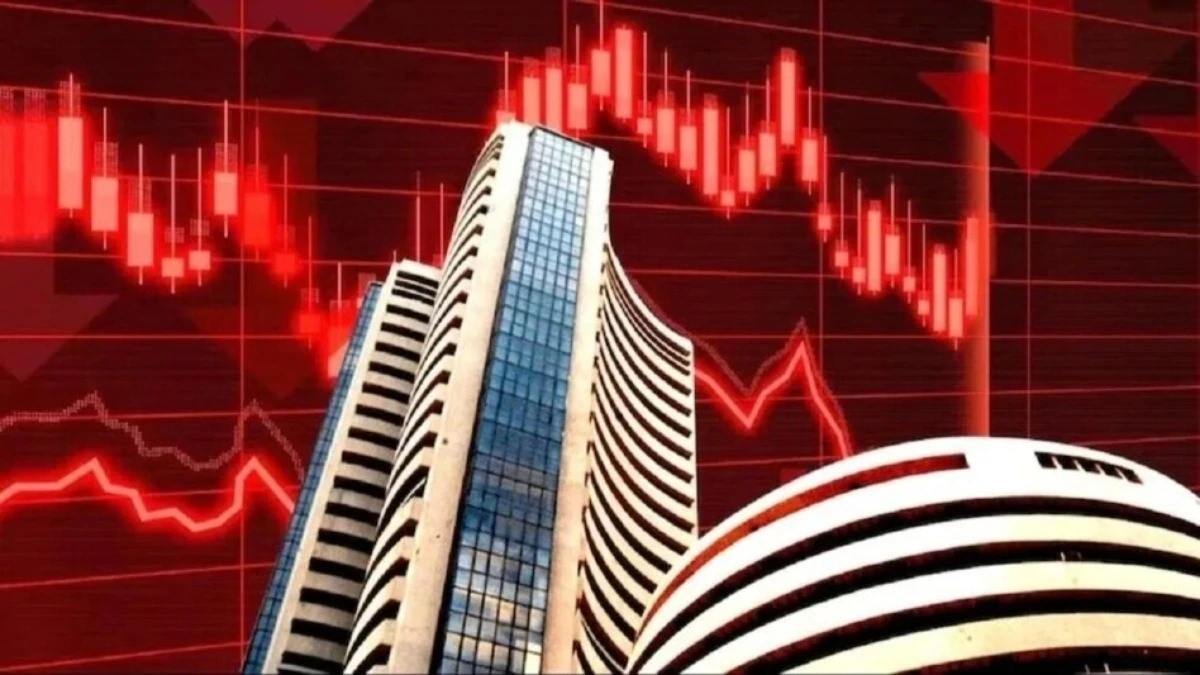The recent decline in India’s benchmark indices, the Sensex and Nifty, driven by downturns in the financial and oil & gas sectors, can be attributed to a combination of domestic and global factors. Here’s a structured analysis:
Financial Sector Decline
Interest Rate Pressures:
- The Reserve Bank of India (RBI) may have maintained or raised interest rates to combat inflation, squeezing banks’ margins. Higher rates dampen loan demand (e.g., mortgages, corporate borrowing) and increase defaults, impacting profitability.
Asset Quality Concerns:
- Rising non-performing assets (NPAs) in banks, particularly in public-sector banks, could trigger investor anxiety. Stress in sectors like agriculture or SMEs might exacerbate this.
Global Banking Sector Ripples:
- Uncertainty from global banking crises (e.g., U.S. or European bank failures) may have led to risk-aversion in financial stocks.
Regulatory Tightening:
- Stricter RBI norms on capital adequacy, liquidity, or unsecured lending (e.g., personal loans) could weigh on growth prospects.
Oil & Gas Sector Weakness
Upstream Companies:
- Falling global crude prices (e.g., due to oversupply or reduced demand) hurt explorers like ONGC and Oil India.
Downstream Companies:
- Refiners (e.g., Reliance, IOC) face margin pressures if crude prices rise while fuel prices remain regulated or capped.
Government Interventions:
- Windfall taxes on domestic oil producers and export restrictions on fuel (to control inflation) dent profitability.
Geopolitical Risks:
- Tensions in the Middle East (e.g., Red Sea disruptions) or Russia-Ukraine war impacts supply chains and input costs.
Energy Transition Pressures:
- Global shift toward renewables dampens long-term investor sentiment in fossil-fuel-heavy firms.
Broader Market Triggers
Foreign Investor Pullout:
- Foreign Institutional Investors (FIIs) may be withdrawing from emerging markets due to rising U.S. Treasury yields or a stronger dollar, impacting liquidity.
Domestic Macro Concerns:
- High inflation, fiscal deficit worries, or slower-than-expected GDP growth could erode market confidence.
Global Risk-Off Sentiment:
- Recession fears in developed markets (U.S., Europe) or China’s economic slowdown reduce risk appetite globally.
Impact on Investors
Portfolio Losses:
- Heavyweight financials (e.g., HDFC Bank, ICICI) and oil giants (Reliance) drag down indices.
Sector Rotation:
- Investors may shift to defensive sectors (IT, pharma) or safer assets (gold, bonds).
Valuation Adjustments:
- Overvalued stocks in affected sectors face corrections.
Outlook and Mitigation
Financials Recovery:
- Dependent on RBI policy easing, improved credit growth, and stable asset quality.
Oil & Gas Stability:
- Requires stabilization in crude prices, government policy clarity, and diversification into renewables.
Market Resilience:
- Long-term investors might view dips as buying opportunities, especially if India’s growth narrative remains intact.
In summary, the slump reflects sector-specific challenges and broader macroeconomic headwinds. Monitoring RBI policies, oil price trends, and global cues will be critical for near-term market direction.
FOLLOW:https://newsroom47.com/tesla-announces-hiring-in-india-after-meeting-modi/
Newsroom 47
